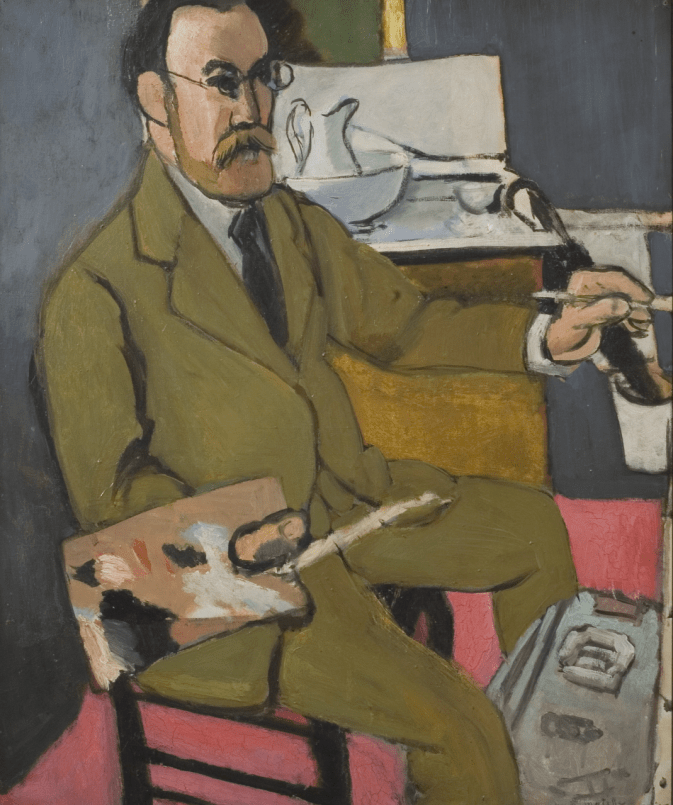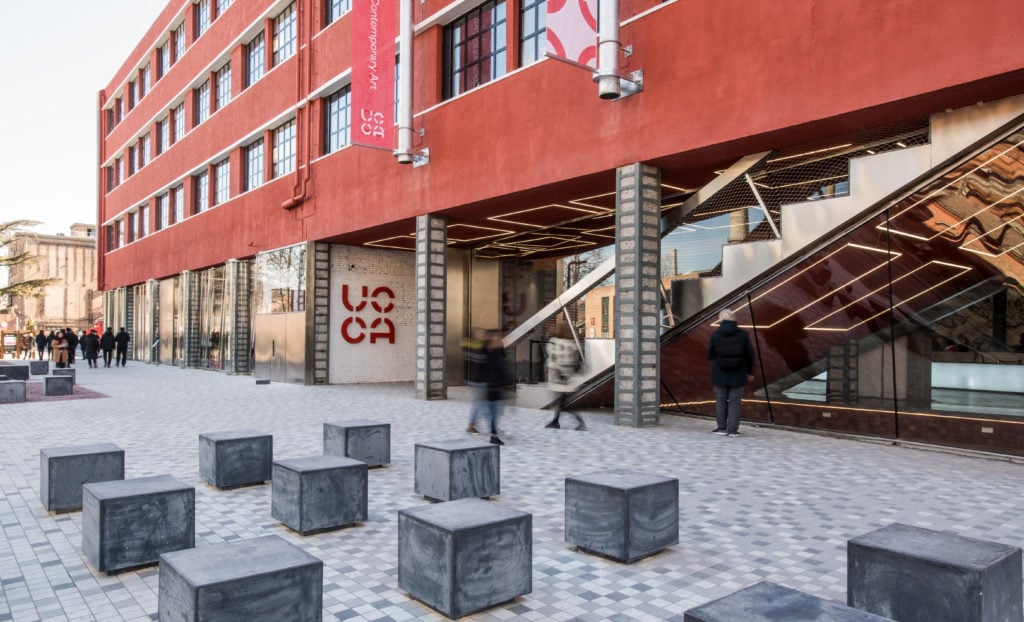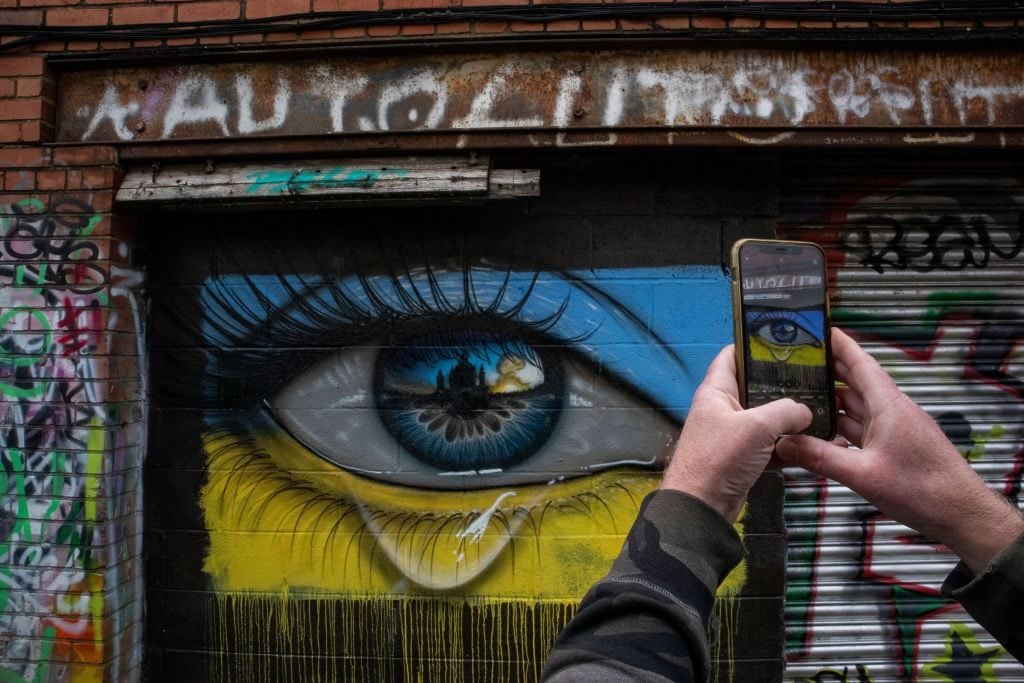Politics
Dissident Artists Applaud France’s Decision to Cancel a Matisse Loan to China in Protest of Its Silence on Russia
"It's the least the international art world can do," said one exiled Hong Kong artist.

"It's the least the international art world can do," said one exiled Hong Kong artist.

Vivienne Chow

Artists who have been critical of Beijing’s response to Russia’s war on Ukraine said they welcomed a French museum’s recent decision to halt a loan of nearly 300 works by Henri Matisse to China.
“The boycott and sanction against China should have been there way earlier,” the Australia-based Chinese artist Badiucao told Artnet News. “The art world is the most compromised [sector] of Western society, which has been turning a blind eye to so many of China’s human rights violations, from endless censorships on artists to the brutal crackdown on Hong Kong’s pro-democracy movement and the Ugyhur genocide.”
France’s Matisse Museum, which operates under the Nord Department, announced on February 25 that it would suspend its cultural exchange with China, leading to the cancellation or postponement of “Matisse by Matisse,” the largest ever solo exhibition of the French artist in China. The show was originally scheduled to open at UCCA Beijing on March 26, followed by a presentation at its Shanghai location, UCCA Edge, in July.

The façade of UCCA. Image courtesy UCCA.
UCCA announced on March 3 that the exhibition would be postponed and made refund arrangements for those who had already bought tickets.
“UCCA remains deeply committed to global cultural exchange and is actively working with partners in France in hopes of rescheduling the exhibition for a later date in both Beijing and Shanghai,” the statement said.
UCCA representatives did not respond to requests for comment, nor did the Nord Department or the Matisse Museum.
China’s state-owned newspaper Global Times criticized the French department’s decision. “Art and culture should not be controlled by narrow-minded political prejudices or become tools for political gain. Matisse tried to use his paintings to express optimism during a time of war,” one article read. It added that China has taken a neutral stance; the country abstained from voting on a U.N. Security Council resolution condemning Russia for its war on Ukraine.
Some others in the Chinese-speaking art world, meanwhile, have expressed sympathy for UCCA, which is paying the price for the Chinese government’s actions but is not a government-run institution.
Wang Yi, China’s foreign minister, has said that Beijing was ready to help to end the war through diplomatic means. But there are reports that China knew about Russia’s plan to invade Ukraine long ago, and asked Putin to wait until after the Beijing Winter Olympics.

A resident takes a photograph of a new mural in Cardiff depicting Ukraine’s capital under siege on March 1, 2022 in Cardiff, Wales. Photo by Huw Fairclough/Getty Images.
The Nord Department set a good example for cultural institutions around the world, said Clara Cheung, a Hong Kong artist who was elected as a district councilor in 2019, but was forced to step down and relocate to the U.K. following the passage of the national security law.
“It is a cultural sanction against those who support the invasion of Ukraine. It is about standing with Ukraine and building solidarity among global citizens who embrace the liberal values,” Cheung told Artnet News, adding that Ukraine had previously shown support for Hong Kong’s pro-democracy movement. “As a cultural practitioner from Hong Kong, I know my artist allies in Hong Kong would support the current decision by France’s Nord Department.”
“China’s communist connection to the support of Russia’s war crimes will be exposed, further soft sanctions from the international community will continue to appear as war in Ukraine worsens,” said political artist Kacey Wong, who moved from Hong Kong to Taiwan last year. “That’s the least the international art world can do.”
熊本城がウクライナカラーにライトアップ??ウクライナからロシア軍が撤退し、1日でも早く平和な日常が戻りますように?#熊本城#ウクライナ pic.twitter.com/JSxjP75DGc
— 山崎 修@闘え!2022 (@yamachanchanko1) March 4, 2022
Cultural institutions in the West, including the Venice Biennale, the Guggenheim, and the Royal Academy, have taken strong stances against Russia, cutting ties with its artists and rejecting funding from its oligarchs over the past week.
Institutions in Asia, however, are noticeably much quieter. Countries across the continent have had mixed reactions to the invasion, while only those more aligned with Western values have spoken out in support of Ukraine, including Japan, South Korea, Singapore, and Taiwan.
Japan has illuminated some official facilities with blue and yellow lights—the color of the Ukraine national flag—including at the famous Kumamoto Castle.
S. Korea-
Supporting Ukraine
Dongdaemun Design Plaza, a cultural complex in eastern Seoul, is lit up in blue and yellow, the colors of the Ukrainian flag, on March 1, 2022, in support of Ukraine following the Russian invasion./Yonhap news pic.twitter.com/nJtTef9Fmp— 점잖은 고양이 (@saramimeonjeoda) March 2, 2022
Top South Korean actress Lee Young-ae and K-pop group U-KISS have made donations to the Ukraine war relief efforts. But the exhibition “Kandinsky, Malevich, and the Russian Avant-Garde: Revolutionary Art” is still going on at the Sejong Museum of Art.
Reactions from Taiwan are among the strongest, as the self-governed island has been under threat from China, which could seize it in the name of reunification. Besides the Taiwan government’s official statement condemning the Russian attacks, a concert held on February 27 at the National Kaohsiung Center for the Arts rallied public support for Ukraine.
Hong Kong’s institutions have been predominantly quiet (and are largely closed due to the current wave of the pandemic). However, some members of the Hong Kong art community told Artnet News that people have been making cautious comments on the war in public. Others are debating whether making donations to Ukraine would violate the national security law because of Beijing’s ties to Moscow. The law implemented in June 2020 bans activities related to secession and collusion with foreign forces. Those convicted may receive up to life imprisonment.